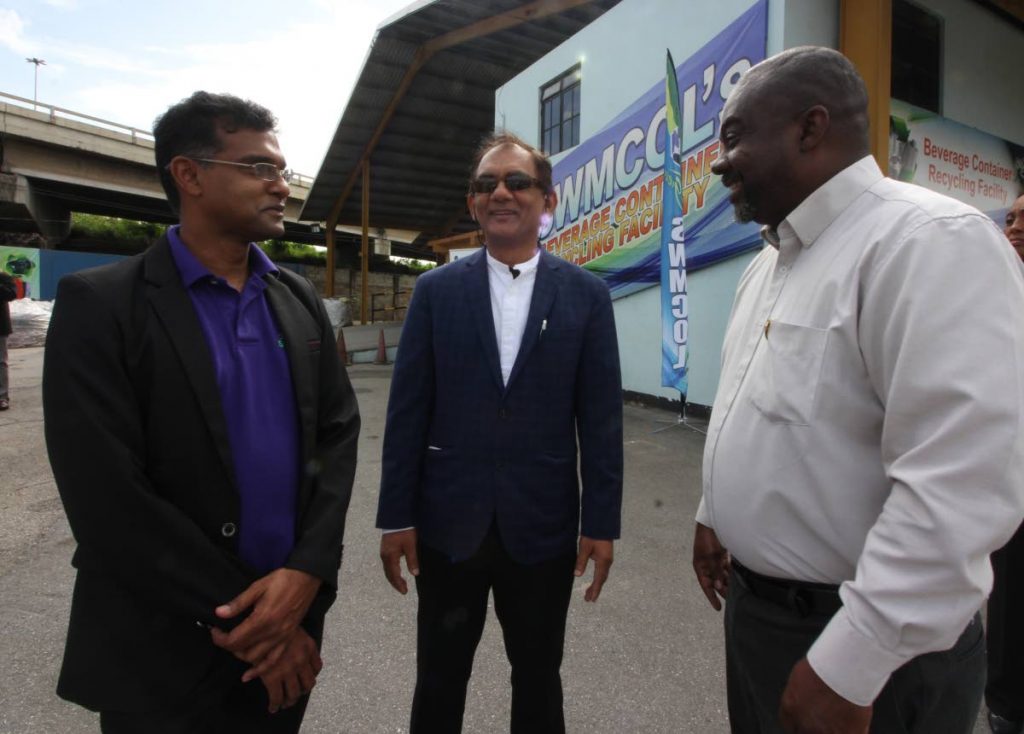SWMCOL on recycling-education drive

Chief executive chairman of the Solid Waste Management Company Ltd (SWMCOL) Ronald Roach has described this country as “a wasteful society”.
He made the statement as members of the media were led on a tour of SWMCOL’s recycling plant yesterday at Abattoir Road, Sea Lots.
There are also recycling plants in Guanapo and Forres Park.
SWMCOL and the Environmental Management Authority (EMA) have come together to help make TT a cleaner, more environmentally-friendly place by encouraging the public to recycle their waste.
Amid bales of plastic bottles, cans, cardboard and shredded paper, Roach said all were brought in on a voluntary basis.
“There are people who voluntarily separate plastics and bring it in. There are some companies who have recycling programmes so it is just a question of sorting the various recyclables from here.
“There are some people who, out of laziness or out of not caring about the system, would put fast food boxes or items that are not supposed to be in the recyclable boxes which is a big problem we have had to deal with. We have had to deal with dead dogs, buckets of faecal waste, sometimes it can be really messy, but given it is a voluntary programme we do have a lot of informants so we do cater for those people who don’t care,” he said.
Roach said there was definitely a need for more legislation and enforcement.
“The police said they recently collected $400,000 in tickets since the new speed limit. If that effort was made in waste management we would become a very clean country or Government would get a lot of money through the fines. But there is a need for more education as well. Despite the public education that currently exists there needs to be day to day announcements that we need to change our behaviour.”
Roach said people often questioned whether they would be paid to bring in disposables, however he said because of the cost of the operation this was not possible. He said it was possible before, but given the cost of oil today they just could not afford it.
“There is a cost to this operation and somebody has to pay the cost, and there is also a cost of the clean up of floods. This project is being funded through Green Fund and the objective is to break even. You have to consider the cost of recycling versus the cost of disposal versus the cost of the environment and the cost of recycling is less than the cost of the other two,” he said.
The allocation for recycling for 2018 is $1million which was used to supply bins and promote public education. He said the price of plastic fluctuated with the price of oil and there was a time when the price of plastic could run a sustained operation.
Roach said while there was no charge for household garbage pick-up, he felt big businesses, commercial and industrial sectors should pay for their garbage disposal.
“There is no reason why that should be free, it is not free in other parts of the world.”


Comments
"SWMCOL on recycling-education drive"